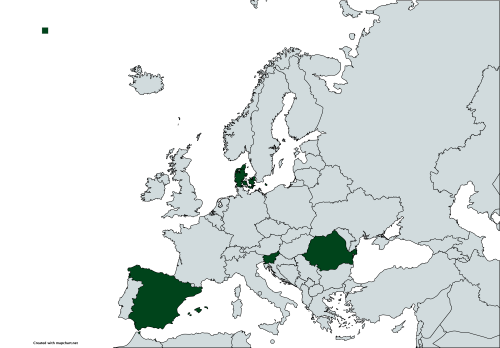
The project "Empowering young people's 21st century skills for improved digital media literacy and AI understanding" is a two-year initiative focused on enhancing students' media literacy and AI understanding in schools and vocational education and training (VET) institutions. Throughout the project, the partnership will explore, co-create, test, and deliver 30 interactive digital educational materials based on a media literacy curriculum. A digital space will also be created for sharing these interactive resources.
As we navigate an increasingly digital world, media literacy is a critical skill. Students are exposed to numerous forms of media and often turn to social media for news about current events. While social media can be a valuable tool, it is vital that young people learn how to distinguish credible sources from fake news and identify AI-generated or manipulated content. Media literacy is therefore one of the most essential skills for 21st-century learners.
The fundamentals of media literacy include understanding various digital formats and the ability to recognise and critically evaluate AI-generated materials. Media literate information consumers must be able to identify key features of specific media sources. Teachers in schools and institutions participating in the project have found that young people are not sufficiently aware of the risks associated with social media, such as fake news, misinformation, and data privacy concerns, as well as the increasing impact of AI. These are complex areas that require critical thinking and problem-solving skills to navigate.
With this project, the partnership aims to develop interactive educational materials that meet both the need for up-to-date media literacy resources in educational institutions and the demand for engaging, student co-created learning materials. Currently, young people’s digital competencies are often dependent on local priorities and individual initiatives, which risks creating a divide where only a small group of students gain sufficient skills to critically engage with and co-create in the digital society. Therefore, European society must take responsibility for initiatives across the education system, ensuring that all children and young people—regardless of background or interests—develop basic competencies in digital technological literacy. This requires transnational collaboration with dedicated educational institutions, as realised in the 21st IMPACT project.
The project is carried out in collaboration with partners from Spain, Slovenia and Romania and is supported by the Erasmus+ program.
Erasmus+ Project number: 2024-1-DK01-KA220-SCH-000244785.
The project period is October 2024 – September 2026.
- Coordinator: Esbjerg Realskole (Denmark)
- Partner: CEBANC (Spain)
- Partner: Scoala Primara FEG (Romania)
- Partner: OSNOVNA SOLA OLEG MEGLIC (Slovenia)
- Partner: SOSU ØSTJYLLAND (Denmark)
Read more on the project here: https://www.21impact-project.eu/

